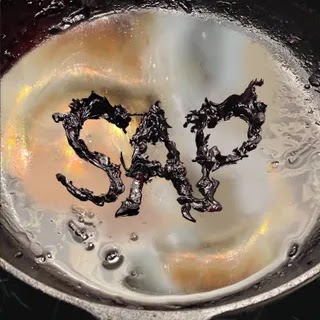On her third album, Kaya Wilkins’ arrangements have finally caught up with her free-roaming mind; the music has gathered weight and mass, bringing her distinctive insights into focus.
Kaya Wilkins opens her third album as Okay Kaya with an arrestingly odd image: “Like a newborn building/I take up space.” Beyond the strangeness of the comparison, there is also a troubling Frankensteinian composite in the juxtaposition of “newborn” and “building,” a dissonance that grows more disturbing as she elaborates: She’s covered in scaffolding, she blots out the sky, people scurry nervously beneath her. As metaphors go, it’s labored, but Wilkins uses the music to show us what it means. As she sings, “Come into my metal arms,” in stepwise ascending harmony, cymbals shudder and crash, deep bass resounding beneath her while synthesizers, courtesy of Nick Hakim, creak and whine. The music acquires a sense of scale, and suddenly Wilkins is the building, erecting herself right before us.
On previous albums, Wilkins wrote about her emotions with similar titanic wonder, as if mapping the surface of an alien planet via probe, but the music often failed to keep pace. Her lyrics aimed for the defamiliarizing gaze of the filmmaker John Wilson, creator of the cult HBO Max hit How To, with whom she recently conducted a podcast interview and who, it turns out, shares her belief in the thematic possibilities inherent in scaffolding. Wilson and Wilkins are spiritual siblings, with Wilkins singing patiently to you about your cerebrospinal fluid the same way Wilson stammers earnestly about the importance of plastic on furniture, both toeing the line between charming and cloying.
Until now, Okay Kaya records have often felt like a compelling viewpoint in search of a sound, but on SAP, Wilkins’ arrangements have finally caught up to her free-roaming mind. Tapping into a wide range of collaborators, from Hakim to Adam Green, Deem Spencer, and Eli Keszler, the music on SAP is bold and sinuous, full of unexpected intrusions like the synthesized tuba that blurts on “mood personified into Object” or the depth-charge pulse on “Inside of a Plum,” which resounds right after Wilkins dreamily compares her orgasm to “scuba diving in space.” There is more happening, in all corners of her songs, than before, and as she keeps trying new things, the music gathers weight and mass, bringing her strange insights into focus.
Take the mordantly funny “Jazzercise,” in which Wilkins’ impersonation of a chipper fitness instructor (“Spandex, Lycra, every day”) quickly veers into alarming territory—“Did you know/Without the ego/There is no narrative/Just being here and having been”—as the Casio-preset funk of the backing track burbles away, oblivious to her existential panic. It’s clever and incisive, and she would never have quite been able to pull off something like it on her comparatively sleepy earlier records. Here, as in the processed stacked harmonies on “Pathologically Yours,” Wilkins touches some of the playfulness of early Laurie Anderson, a hallowed touchstone she’s never been anywhere near before.
You can tell Wilkins is emboldened by this new freedom from her decision to assay something as audacious as “Jolene From Her Perspective,” which is just what the title says. Not only does she have the gall to chide Dolly Parton—“Dolly, Dolly, Dolly/I could never take one human being from another”—she sidles up next to her and purrs in her ear: “Don’t you know I think you’re heaven sent/I can’t believe we’re arguing about some man/That’s so silly, in fact I’d rather talk about you and me.” The audacity of it is charming and disarming: “I know you cheated too,” she coos. The nerve!
There are dark moments—on “Origin Story,” she confronts her ambivalence about her father in the most graphic terms (“I am scum/I am cum…/Wish I came from no one”)—but it turns out the the more fun Wilkins dares to have on record, the better and more distinctive she sounds. “In Regards to Your Tweet” is an invitation for a lover to “sleep on me” (“I don’t mind it/It’s like a weighted blanket”), its simple guitar figure enlivened by a plasticky 1980s R&B groove, drifting far behind in the mix. It’s a complementary noise, a car passing by her window, perhaps, but it creates the kind of shared loneliness that has often emanated from bedroom pop, which by its nature twines together impulses for communion and isolation. Someone, somewhere, that distant groove suggests, might be dancing along to this music with Wilkins, if even only from within the solace of their own minds.



0 comments:
Post a Comment